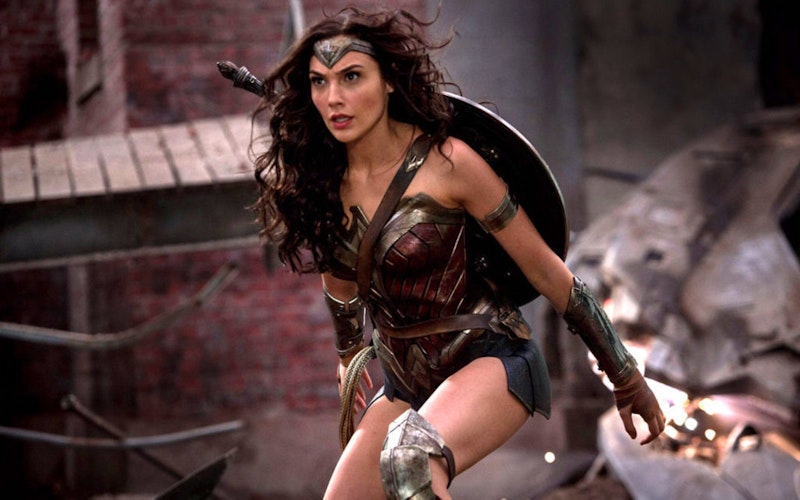
Movies
Wonder Woman and the Search for Female Role Models
“They don’t want us to be priests. They want us to be obedient nuns.”
That was actress Angelica Huston in 2015, tellingThe New York Times that the film industry is “kind of like the church” when it comes to women leaders. In the two years prior to that interview, women had composed only 1.9 percent of the directors of the 100 top-grossing films. Since the interview, the numbers have shrunk even more.
The recent release of Wonder Woman, with its historic pairing of a superheroine (played by Gal Gadot) and a female director (Patty Jenkins), has released a barrage of think pieces and reviews. Such conversations about female empowerment and gender inequality echo a conversation Huston not-so-subtly alluded to.
Both women in film and in churches and ministries who want to lead face a sheer lack of representation. Consider the statistics above concerning female directors; consider also the recent Barna Group research that found “large numbers of Americans embrace the presence of female leadership at work and in politics, [but] they are least comfortable, comparatively, with women leading the church.” A woman who aspires to direct films—or who aspires to lead in a local church setting—may not always see people who look like her behind the camera or at the front of the church.
Hence the relief and excitement that accompanies a discovery of a mentor, a role model, or a figure doing just what she wants to do in her field. As Arise editor Rachel Asproth writes of her first time hearing a woman preach, “Seeing a woman in the pulpit was a powerful confirmation of my prophetic authority and capacity for leadership.” Likewise, many moviegoers saw Wonder Woman as an empowering, even emotional, experience, and why they are thrilled that young girls can see Diana Prince as a superhero who kicks butt and also looks like them.
Well, sort of.
For all of the critical conversations it’s stirred, Wonder Woman remains flawed in part because of the seeming flawlessness of its title character. Sure, we can identify with Diana’s frustration at the compromises of war, at the “selective outrage” we mere mortals often rely on to avoid burnout. But how many of us can really identify with an Amazonian demigoddess?
As Alicia Cohn writes for Christianity Today, “What Jenkins has not created . . . is a relatable female superhero . . . She loves, apparently, but without any of the mess we mortals endure in our relationships. She even has impeccable taste in non-Amazonian clothes.” For Christina Cauterucci, writing at Slate, "by the time the action got too fast-paced and loud for any more characters to marvel at Diana’s fine bod and bone structure, I was about an hour past being sick of the ‘sexy lady is also hypercompetent’ joke.” It seems even a female-directed, female-led superhero movie in 2017 can’t entirely avoid the stereotypes.
At the end of the day, though, perhaps we can take Wonder Woman as simply a step in the right direction—a smaller step than many might have hoped, but a step nonetheless.
Similarly, women leaders in the church can find plenty of cause for discouragement, as stereotypes and unrealistic expectations abound there, too. Yet we can also reexamine the Barna statistics and see that “the percentage of Protestant senior pastors who are women, though still small (9%), is triple the percentage of 25 years ago.” We can see steps in the right direction, however small they might be.
The temptation at this point is to let those steps stop because women have made some progress in the world of film and church ministry alike. We might hear voices saying, “Isn’t that enough for now? Shouldn’t you be satisfied?”
While working on a piece about the gender wage gap in the church, I talked to women who encountered such attitudes constantly. “[W]omen are trained to be submissive and to be grateful for what they have received and to not rock the boat,” one said; another remarked, “It’s a part of that trick that says to women, ‘You need to be glad that we accepted you. We affirmed women. Give us credit for that.’ ” As Wonder Woman’s release approached, similar issues and anxieties surfaced: Scott Mendelson wrote in Forbes that even if the film smashed all box-office records, he feared “the industry will react as if nothing is different, and thus nothing will change.”
Such fears are well-founded—but they should not hold us back from dreaming, imagining, and creating more opportunities for women leaders. They should remind us to support the aspiring female directors and teachers and preachers around us, to work toward a radical, upside-down world in which “there is no longer male or female,” because we are all mysteriously, wonderfully, miraculously held together as one.
At the end of the day, perhaps we can take 'Wonder Woman' as simply a step in the right direction—a smaller step than many might have hoped, but a step nonetheless.
Topics: Movies, Culture At Large, Arts & Leisure, Theology & The Church, The Church, News & Politics, Media